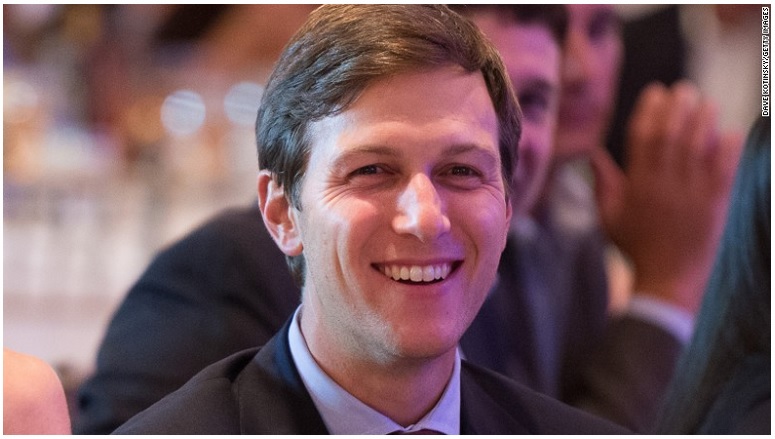In the interview, which is the first time he has
spoken publicly about his role in Trump's victory,
the businessman and investor discusses how he ran
his efforts with a tech startup-like feel, first
reaching out to digital marketing experts.
"I called some of my friends from Silicon Valley,
some of the best digital marketers in the world, and
asked how you scale this stuff," Kushner told the
magazine. "They gave me their subcontractors."
Ivanka Trump's husband learned how to use Facebook
micro-targeting, and social media becoming a major
aspect of the campaign's voter outreach strategy.
Kushner formally took over the data efforts for
Trump in June, Forbes reports, building a secret
100-person data hub in San Antonio, Texas, "designed
to unify fundraising, messaging and targeting."
Kushner and his team took a fast-moving,
trial-and-error approach to spending in states,
reflecting the Trump campaign's famously lean
spending strategy throughout the campaign. This
was key to victories for the Republican
candidate in states like Michigan and
Pennsylvania.
"We played Moneyball, asking ourselves which
states will get the best (return on investment)
for the electoral vote," he said. "I asked, 'How
can we get Trump's message to that consumer for
the least amount of cost?'"
"We weren't afraid to make changes. We weren't
afraid to fail. We tried to do things very
cheaply, very quickly. And if it wasn't working,
we would kill it quickly," he said. "It meant
making quick decisions, fixing things that were
broken and scaling things that worked."
Kushner credits the campaign's fundraising haul
to machine learning. Per Forbes, his operation
"(installed) digital marketing companies on a
trading floor to make them compete for business.
Ineffective ads were killed in minutes, while
successful ones scaled. The campaign was sending
more than 100,000 uniquely tweaked ads to
targeted voters each day."
Forbes reports Kushner's data operation
ultimately made decisions about "travel,
fundraising, advertising, rally locations--even
the topics of the speeches," much like Hillary
Clinton's algorithm-driven data efforts.
He became indispensable to Trump and "wants to
be an adviser" to the President-elect, per
campaign manager Kellyanne Conway.
Kushner also weighed in on support for the
President-elect from white nationalist groups:
"Trump has disavowed their support 25 times.
He's renounced hatred, he's renounced bigotry,
and he's renounced racism. I don't know if he
could ever denounce them enough for some
people."
"If even the slightest infraction against what
the speech police have deemed correct speech is
instantly shouted down with taunts of 'racist,'
then what is left to condemn the actual
racists?" said Kushner, who is Jewish.
"You can't not be a racist for 69 years, then
all of a sudden become a racist, right? You
can't not be an anti-Semite for 69 years and all
of a sudden become an anti-Semite because you're
running."






































